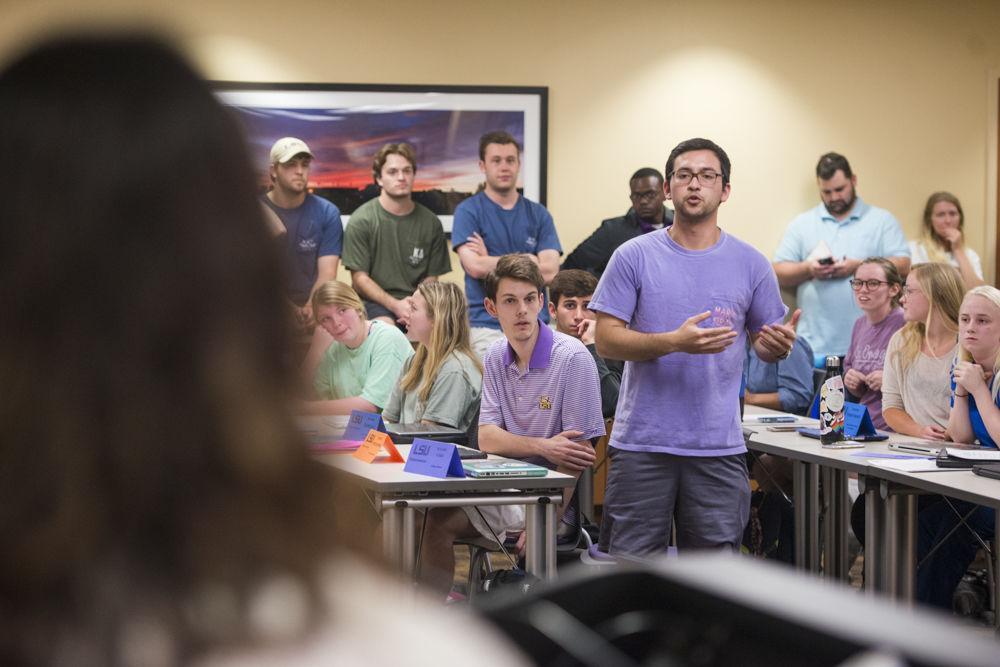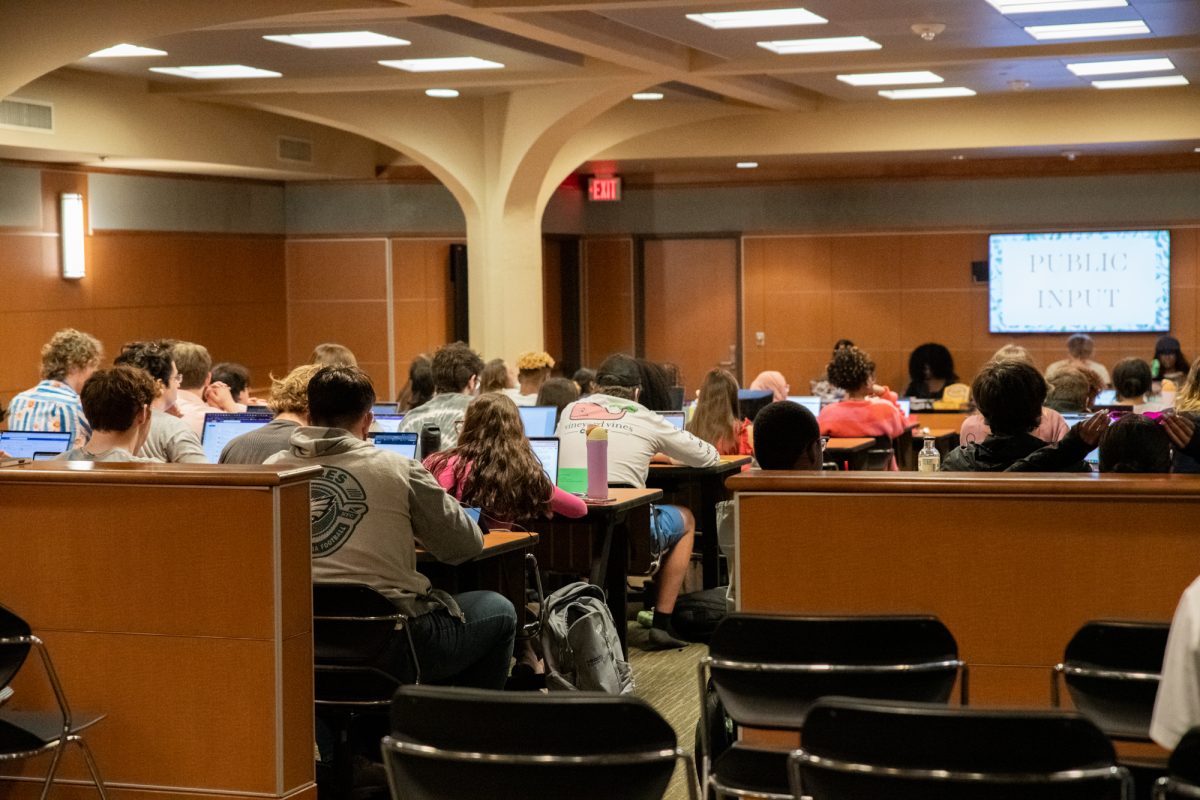The LSU Student Government election may be in March, but the time for prospective Senate candidates to start their campaigns is quickly approaching.
The pre-filing period will be on Feb. 18 and 19 for the Spring 2019 election. This is when students will register to run for the Senate on SG’s website. Students will need a minimum 2.0 GPA and must provide their names, 89-numbers, email addresses, the position they will run for and their senior college they would subsequently represent if elected.
Student Senate Speaker Christina Black and Speaker Pro Tempore Austin Grashoff strongly encourage pre-filing because, if a student makes a mistake, it can be corrected before filing. Students deemed qualified will not need to file if they correctly pre-file. The filing window is from Feb. 20 to 22.
Mandatory position meetings will then be held for candidates who are not already involved with SG to inform them about their expected time commitments, the capabilities of all three SG branches and other important information.
Candidates can actively campaign the week prior to the general election on March 18. Students vote through Moodle and will only be able to vote for Senate candidates who represent their senior college.
“When people are campaigning, sometimes they feel like they have to campaign to the entire student body,” Black said. “They would only need to focus on people in their college because those are the people they will eventually represent.”
Black said there will be at least one seat open for every senior college, including the Graduate, Veterinarian and Law schools.
If students want to learn more about SG, Black said they should talk to current members or visit the legislative branch’s office in room 256 in the LSU Student Union. They can also attend one of the weekly Senate meetings Wednesdays at 6:30 in the Capital Chamber in the Union.
Grashoff said he encourages possible candidates to start thinking of initiatives they could pursue as senators. All they need to do is think of solutions for the issues they notice on campus.
“It’s small things that make a big impact, but also we do huge things, too,” Grashoff said.
Black said coming up with initiatives could be as simple as walking in a dark part of campus at night and realizing the need for better lighting in the area.
Senators are required to attend every meeting and get three unexcused absences each semester. Every Senator belongs to a committee, and they must attend those weekly meetings as well. Grashoff said the minimum weekly time commitment is around five hours, and that can extend upward of seven hours for Senators writing and introducing legislation.
Grashoff said these meetings are as efficient as possible, especially since the Senate requires a greater time commitment than other parts of SG. Senators are allowed to study and do homework during meetings, and a sergeant at arms attends every meeting to monitor screens, ensuring Senators are looking at legislation or completing homework rather than playing games or checking social media.
“It’s either be a student or be engaged,” Grashoff said.
Meetings are conducted using parliamentary procedure and include debate, which some students may be unfamiliar with. Black and Grashoff said they will teach such things to new members.
“We expect people to know nothing coming in,” Black said. “We know it’s a lot to digest. We even know that some of our newer Senators are still learning, and that’s okay.”
Senators are expected to keep in contact with campus organizations and students so they can adequately serve their constituents.
“We want to be there for all the organizations we have on campus because we are here for the students,” Black said. “That is literally how we’re elected and achieve our positions.”
Students can also join the Senate throughout the semester when there are vacancies. Black said she typically cuts off this opportunity around the time of the election, since new senators would not have sufficient time to learn how the Senate operates before the semester ends.










